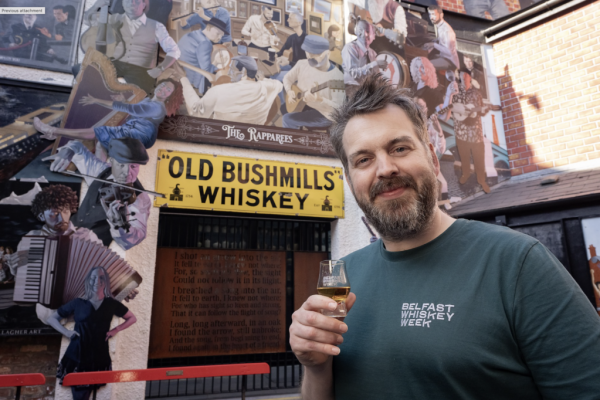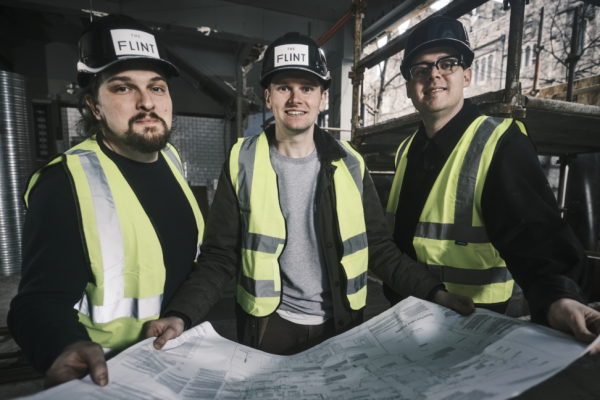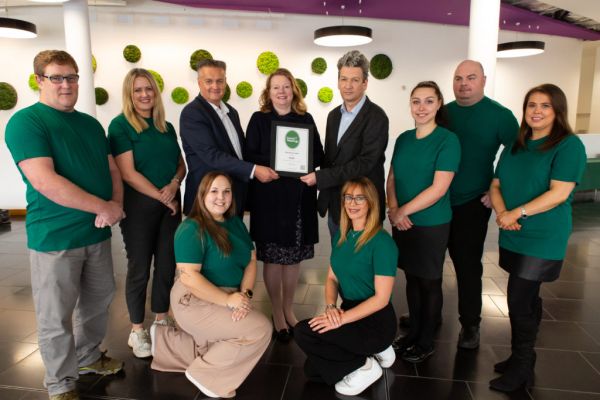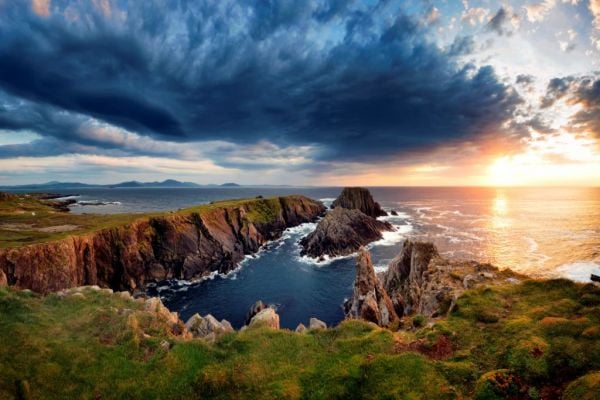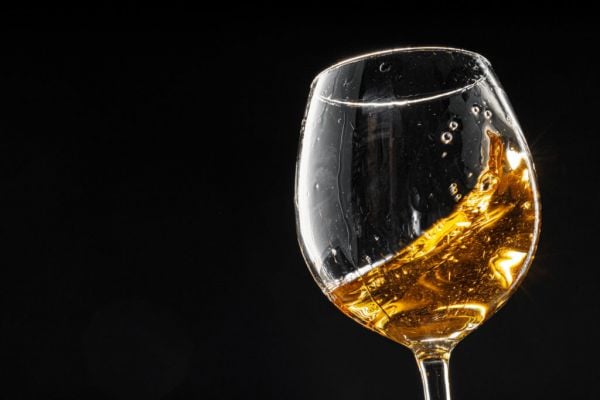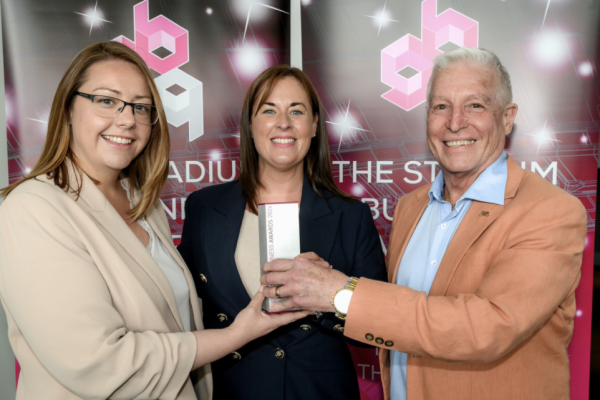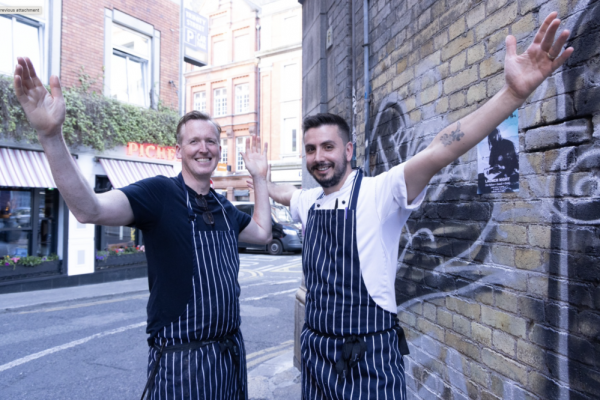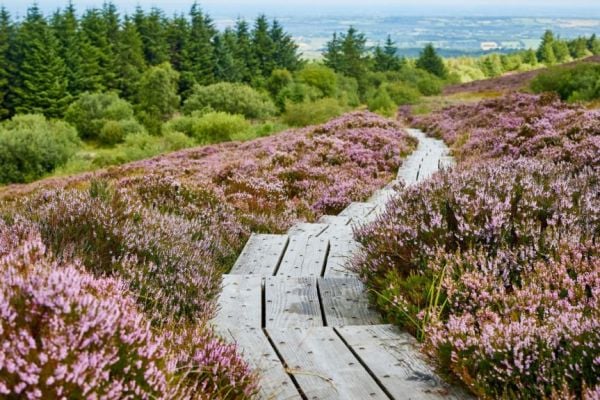Robert McHugh speaks to Paul Kane, founder of Belfast Whiskey Week, about what inspires him.
Belfast Whiskey Week, the largest whiskey festival on the island of Ireland, will be returning to the city this July. The festival features 100 events spanning nine days, in partnership with a wide range of venues and distilleries.
Hospitality Ireland recently caught up with Paul Kane, the founder of Belfast Whiskey Week, for an exclusive interview. The Scotsman tells Robert McHugh what visitors can expect at this year’s festival, why he was inspired to start the event, and how finding a bottle of whiskey in his grandfather’s sock drawer started him on a journey that he would never forget.
What can we expect from Belfast Whiskey Week 2024?
We have around 100 events, which are not necessarily just whiskey-tasting events. There will be events where you experience whiskey, either straight-up whiskey tastings or through events where you are part of an immersive experience. There are food collaborations, there are walk-in tours. A lot of the events we are doing are really trying to get people to drink whiskey, rather than for the whiskey enthusiast, specifically. The whole point of the festival is to encourage new people to the category and get them to think about whiskey in a different way.
We work with multiple brands across Ireland, and the idea is to try and partner them up with different places in Belfast to do food collaborations or cocktail-making sessions. There is a sensory event which is on a couple of times during the week. There is some theatre and lots of different things.
The team are trying to encourage people to see whiskey as a drink for everyone, rather than for just white men over the age of 50.
Are you trying to reach a younger demographic?
We have strategically, over the last few years, targeted specifically a younger demographic – anything between 21 and 36. The target again for this year is to try and encourage more women to drink whiskey. It is about offering safe spaces for women to come and explore whiskey. That would be primarily through offering fine-dining experiences and food pairings. The event has many pop-up food stalls and the opportunity to enjoy food with whiskey. Our sweet stuff is popular. We have donuts and chocolate pastries baked by local artisans who are using whiskey in the production.
Belfast Whiskey Week 2024 will offer an opportunity to enjoy whiskey in an environment where you are not being judged. It is not a whiskey club, it is not a whiskey show, where you are expected to know anything about whiskey. It is a place where you can come along and just try it. Even if it is your first time, it’s a good starting point. Whiskey should be accessible to everyone.
What were the origins of Belfast Whiskey Week?
It really was a really mad idea. I was running a whiskey club here in Belfast. We were the only whiskey club in Belfast for the last ten years. In 2019, I had a strange notion in May that year, to run a whiskey festival in July. Everyone in the club thought it was a bit crazy, I thought it was a bit of craic, and just went for it, so it really just comes from this idea of not being from Ireland, being from Scotland.
We have multiple whisky festivals in Scotland: Fèis Ìle – Islay Whisky Festival, Spirit of Speyside Whisky Festival, Campbeltown Malts Festival, Highland Festival. These four major festivals are where people congregate from around the world to enjoy whiskey. I was shocked that Ireland did not have anything like it.
I have to reiterate that we do have exhibition events. They are really important. Dublin has a major exhibition event every year, and that’s huge. It attracts vast crowds over the course of a couple of days, but, really, it is only for three and a half hours. You get to walk around and taste the whiskies. That is not a festival for me.
A festival is about engaging with people. For me, a festival is about people eating and celebrating together, having fun. We are not an exhibition event, we are not a conference. We are a festival that has multiple events per day with different opportunities to meet people, eat different food, drink different whiskeys, experience things together.
We want the festival to be very much centred around the individual, the personal experience, their journey with whiskey. That’s where it’s now aiming. I won’t be anything other than blunt to say that, longer term – in the next four years, maybe – we want about 5,000 participants coming to Belfast to take part in this festival, to rival the likes of Fèis Ìle.
If you are aware of what Fèis Ìle is, it’s a festival which takes place on the island of Islay, and there are over eight distilleries on Islay, and people travel from all over the world to come to it. It is not just about turning up at the distillery and having a drink. There is music, there is entertainment, there is food.
What Islay does not have, and what Belfast has in abundance, is an infrastructure. First of all, for travellers, there are hotels, great pubs, restaurants and visitor attractions once here. You can do other things. Belfast is well positioned now to host such a festival, particularly with the two distilleries based in the city itself. We could get more distilleries than any other county in the rest of Ireland.
Part of the festival includes day trips out to the different distilleries. There’s lots of tours, walking tours – some of them end up at the distilleries. The festival is about bringing people to Belfast, but also then taking people from Belfast out to their distilleries and getting people to involve themselves, immerse themselves in those businesses.
Belfast Whiskey Week has a vision. I am driven now to ensure that Belfast reclaims its whiskey heritage. I cannot make Belfast produce more whiskey than any other place in the world – that will not be recaptured. What we will recapture is the spirit of Belfast, the importance of Belfast whiskey, and the dominance of our whiskey production across the world. You need this festival to push that.
I welcome just about every brand in the north of Ireland, bar one. That’s about 17 different whiskey brands involved in the festival, and then from the south, about 70% of the brands are involved also. It’s an all-Ireland approach. I get that we have other events elsewhere.
It’s been really nice that people have taken a leaf out of my book. There is a smaller event, a three-day event down in Cork. There is another one in Wexford. Those two little events have tried to mirror some of the stuff that we do, but will never reach what we are just now, with about 100 events spread out throughout the city, working with multiple venues, businesses, and collaborating with partners across the country. It probably sits as one of the largest festivals in the world, and that is based on the size of it. Based on numbers, it will rank below, in terms of personnel. Generally, for nine days, it is certainly the longest festival in the world for whiskey.
You mentioned that you are originally from Scotland. Please tell me a little bit about your own background – where you grew up and studied.
I am from a place called Lanark. I am really just from the outskirts of that small town and out in the villages. I’m a country boy.
I studied law at Strathclyde and politics at Dundee. Although Belfast Whiskey Week is a really interesting project, it is very much a project for me. I have other businesses that I am involved in. I am no longer employed by anyone. I have been self-employed as a business owner for the last ten years.
Where did you first acquire your love for whiskey?
That is a really long story, but, I suppose, to paraphrase it, when I was younger and a student, I got bored with the 50p pints in university. That was too much for me. I became quite a pretentious drinker! I would have gone into a bar, ordered the most expensive Macallan whisky off the top shelf. It is not that I thought very much of it – I just drunk it because it had a status.
I moved into a period where my grandfather had passed away. In a sock drawer, he had a bottle of whisky, which said Teacher’s on it. If you are familiar with whiskey, the brand Teacher’s in Scotland is a blend. It is not very expensive – it is very cheap. I took that out of his drawer and put into my sock drawer. I did not think much of it until a couple of years later, when I was cleaning out my room. I took a look at the bottle and decided to find out a little bit more about it. I was interested to find out where my grandfather got it from, and so I phoned Whyte & Mackay, who were the owners of the Teacher’s brand at that point, and spoke to their archivist. Their archivist was the great-grandson of William Teacher. It was just really interesting. I got speaking to him, and he let me know that it was actually a bottle of GlenDronach.
Although it said Teacher’s on it, it also said GlenDronach, or GlenDronach eight years old, so it is a single malt from GlenDronach Distillery. He offered me, at that point, £350 for the bottle for the archives because they don’t have one! I said no, obviously, but at that point, I was taken aback. I realised that there is a potential secondary value to a bottle being purchased. My perception of just going into the bar and ordering a glass of whiskey for no reason other than to drink it changed slightly. Whiskey then became a commodity. I realised that, by purchasing a bottle of whiskey, I could keep it and maybe make something from it at a later date.
I got to the stage where I had purchased so much whiskey that I realised that, although I was purchasing it and I was using it as a commodity, I wasn’t drinking it, and I think my positioning changed. I moved here to Belfast about 11 years ago, and then I got introduced to Redbreast. The first whiskey I ever drank from Ireland was a Redbreast 15, which was lovely – absolutely great.
I’ll be honest – my next drink was a Redbreast 12, and I preferred that over the 15. I knew it was good stuff. I very quickly became acquainted with Bushmills whiskey. I compared it with Redbreast, which was super – totally different to what I’d been used to in Scotch – but I fell in love with Bushmills. I have been a massive fan of Bushmills for the last ten years.
I moved into a space where I was I was drinking whiskey, sharing it, and becoming acquainted with other whiskey enthusiasts. I wanted to get a varied understanding of all the different types of whiskeys across Scotland and Ireland, and eventually into different parts of the world. I built up my repertoire of that, understanding the history behind it – it was very important to me that I started to understand the history of whiskey.
When I took over the whiskey club nearly ten years ago in Belfast, it was important that I did as much research as possible. By creating the whiskey festival, I have continued in my enthusiasm for the industry. What a lot of people don’t understand is that we have got lots of big private businesses and lots of big corporations that are involved in whiskey. That’s really OK. You know, we have got Pernod Ricard, Diageo and Bacardi – all these different people who have an interest in whiskey from multinational organisations.
I am interested in whiskey and the heritage of it, the way in which the whiskey has developed over the last 300 years within Scotland and Ireland, particularly. It is an industry on its own, which is divided into different sections. We have the whiskey production – whiskey is sold around the world. This second part is tourism – people want to immerse themselves in the distillery, they want to understand how the product is made and everything else. Finally, there is the tertiary market for whiskey. It has become a collectible item. It is something that holds value, and holds value really well, particularly in the last 30 years.
There is a bigger story to be told when it comes to Belfast. It has got so much potential. It is known for shipbuilding – the Titanic, for example, was one of the biggest things that ever happened to Belfast. It is also known for linen production – again, a massive industry for Belfast. However, Belfast has been very quiet on the conversation about its whiskey heritage. That is something that I felt that no one was doing anything about. I felt that someone had to shout out a little bit louder about the heritage and the legacy from Belfast when it comes to whiskey and the impact it has had across the world. I have done that as best I could. I will be honest – Bushmills has been there and has been a stalwart of Irish whiskey in the North. I think they should do more, and I would say the same about Irish distillers in the South.
I think there’s still conversations that still need to take place and more needs to be done to talk about this industry. There are not many other industries that have managed to last as long. It has rebounded from where it was within the last 70 to 100 years. It has rebounded to a point where there is a lot of interest, there are a lot of facilities being created, a lot of whiskey being produced, but it is still nothing close to what was being produced. I think a lot of people are frightened about that. Do we have too many whiskey facilities around? No. The demand is much higher for whiskey across the world. Irish whiskey is continually being seen now as a premium product that is highly desirable. If that demand continues, unfortunately, the supply that we have won’t match that demand. We don’t necessarily need more distilleries, but we need more production, and that means maybe some distilleries doubling in size.
Bushmills did that. Within the last year, it doubled its production size. At this point, it is one of the top five distillers in the country. It doubled production, and it has the capacity now, due to its new design, to triple that capacity whenever it decides. That is important.
We have some really small, tiny distilleries. The two in Belfast are really good examples: Titanic and McConnell’s – they are limited in capacity. They are within historic buildings. These buildings will not expand. Whatever they produce is what they produce, and they cannot expand. For example, if an African country decides they really like McConnell’s whiskey and they think it’s the best thing ever and they put an order in for 100,000 cases, well, unfortunately, McConnell’s won’t be able to supply that. You want it to succeed and do really well, but you have also got to know there are some limitations. I am in it because I do not get paid to advocate whiskey. I am an enthusiast. I am not an expert, I am not a paid ambassador for anyone, but I love the history of it.
Imagine that someone 40 years ago, who’s dead and buried a long time ago, decided to bottle some whiskey in a certain type of cask in a distillery somewhere. That was their idea. That was their madness. They thought, I am going to put that into the back of a warehouse – it is going to sit there. Everyone for the last 40 years has looked at that cask. They have touched it. They have opened it. They have tasted it. They have smelled it. It has lived for 40 years in a warehouse. It has belonged to a few handful of people who have managed to live with that and create something from it. That is something quite special. Whether it is for three years or 40 years is irrelevant. The fact is that someone has done that. Whiskey is not something which is created overnight, but takes a period of time. It takes a little bit of patience, as well, to understand that even at three years, it might not taste great.
I really want whiskey to continue to be talked about and explored and celebrated. I think that, at some point, Northern Ireland will really focus on its wealth of history regarding whiskey. That legacy and that history is now pushing forward the new brands that we have. That is where I see things. The festival is a very small part – a speck of dust on the grand scheme of the industry.
However, it can also be looked at the other way: it can also be looked at as probably one of the most important things for the industry because if it continues to grow and it continues to garner support, it will continue to create new drinkers. It will continue to inspire people who are very interested in the brands and in the liquid themselves that will then push sales and push people to increase levels of production, and the industry then will continuously profit from it.
I can look at it either which way. I can see it as being a very insignificant part of the whole thing, or I can see it as being something extremely important for the industry.
What do you enjoy most about your role as founder of the festival?
I just love the creativity. There is something really unique about it. I own a dental practice – I’m not a dentist, but I own a dental practice, right? – and it’s fun because we are getting to help with the largest NHS practice in the country. We get to help people all the time, and that’s grand, but I am limited to what I can do imaginatively. I hire a dentist, and they do their job, and that is the end of it. I own a football team here in the North. To be honest, that’s got its limitations, whereas the whiskey festival is just pure, unadulterated fun. There is creativity and a space to explore new ideas. The fact is that whiskey is such a fluid product, and I can do pretty much everything with it.
I am really bad when it comes to these food collaborations. I have worked now with the same company for the last two years on whiskey donuts. We sit down with the bakers and we create six unique whiskey donuts for the festival, and they are spectacular, and then I’m working this year with two chocolatiers in the North who are creating bespoke truffles and chocolates for the festival. One of our celebrity chefs is doing two patisseries for the festival. I have got a sweet tooth, and I recognise what whiskey works well with sweet things. We are doing collaborations this year with cheese producers. We always have a festival burger. I can see something that I think could work with the festival – I can explore it. It’s about having that creativity. It is a very easy question for me to answer. It is all about creativity. It is all about having a purpose to engagement.
The festival is trying to engage with different parts of the community. I’m talking about different demographics, where, in the main, whiskey is something your daddy would have drunk. Our first tagline that we created back in 2019 to get people to come to our events was, ‘Whiskey is no longer your da’s drink!’ We had that on a little sandwich board outside every one of our venues. We have used that tagline every year because it is something that we generally believe in. Whiskey is no longer your da’s drink. That is the message I want to get out.
I am looking for young people. By the way, 40% of our clientele last year were under 40, and roughly 40% of our clientele last year were women. We have hit some really interesting demographic targets. It’s something that we will continue to do. This year, we have got two events solely for women. One event is arranged and organised by the Earl Whiskey Foundation, which is a foundation solely set up to engage with women and bring them into the industry. They are going to be doing a little piece here at the festival, and it’s got a one-woman show solely about whiskey, and it will be a theatrical experience. It’s creative, it’s fun, it’s enthuses me, it makes me want to do things, it just drives me.
What is your favourite whiskey?
I don’t have a favourite whiskey, per se, and I can’t because that would be impossible, but I do have a favourite type of whiskey. I do believe, at the moment, Irish whiskey is on the rise. There are some fantastic Irish whiskeys out there.
Favourite pub?
I could not say anything other than the Duke of York. How dare I say something different than the Duke of York? That’s where it’s at – great atmosphere.
Favourite restaurant?
It was one of our collaborative partners, actually. I really like Roam in Belfast. It is a good restaurant.
Favourite holiday destination?
Killarney. Donegal was always the summer holiday destination, and then about ten years ago, the house we were in – it was a family holiday home – burned down, and we never went back.
We ended up buying a caravan and would spend all of our time outside of the city, in Ballycastle, but the last few years, it has been Killarney. I have five young children, and we spend a week in Killarney in the beginning of August.
I’m not interested in travelling around the world. I have done all that. I am happy going to a place where there is plenty of history and nature. There is a lovely movement in Killarney and that area for whiskey distillation and whiskey endeavours. That’s cool, and I like that.
